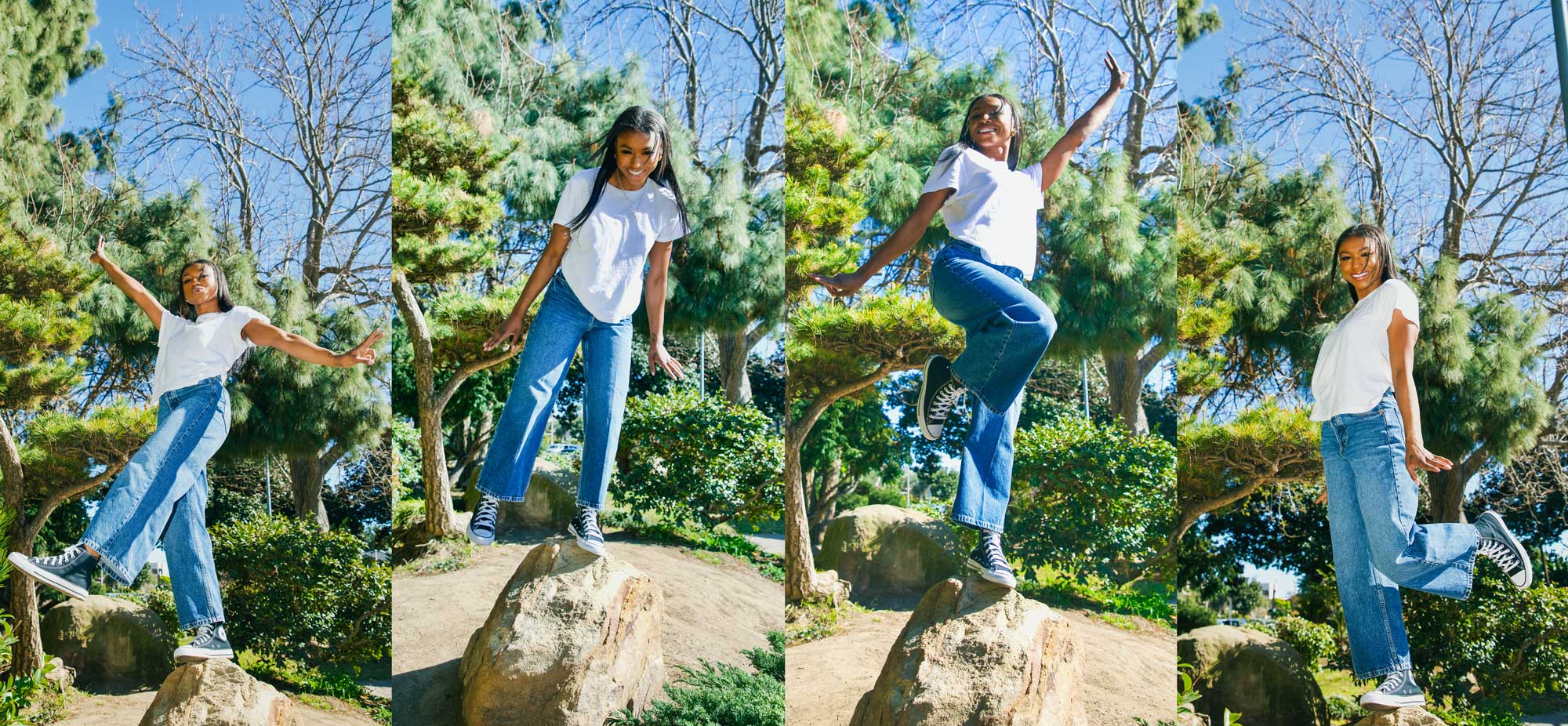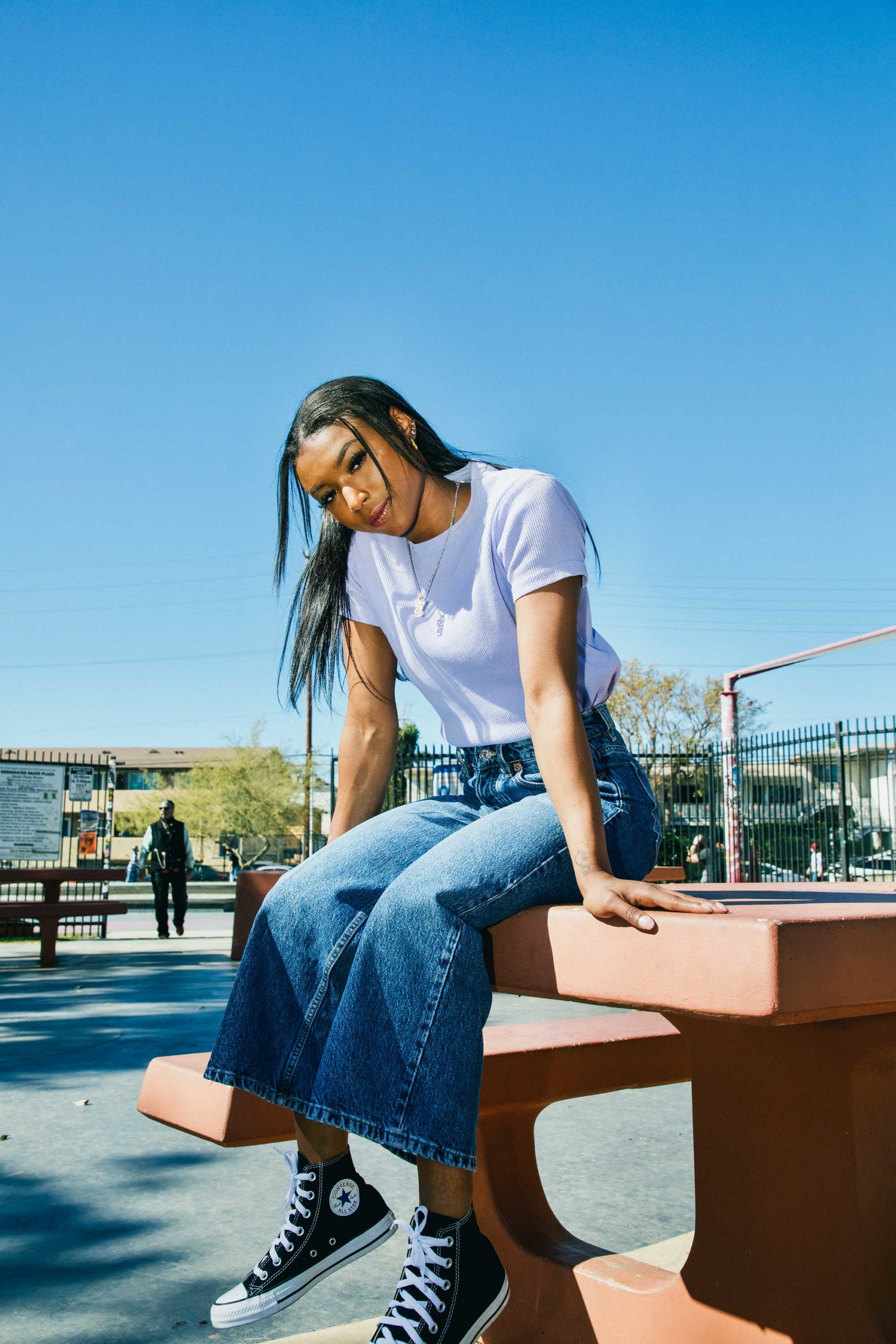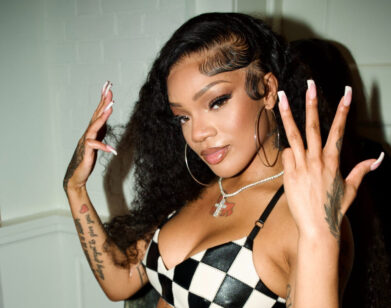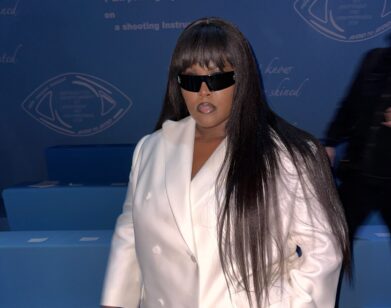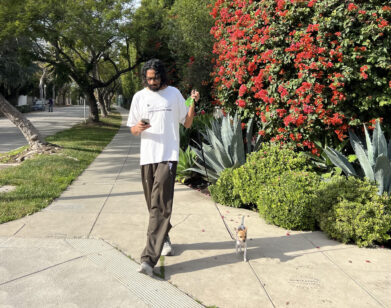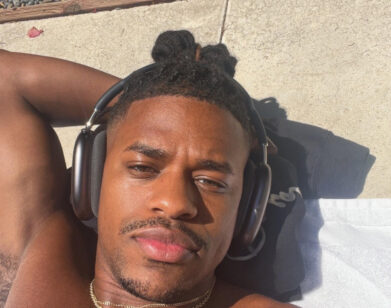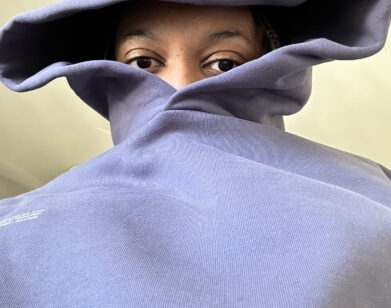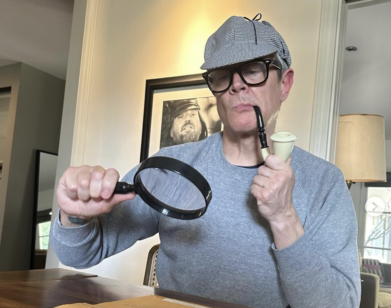sports
Nia Dennis Talks to Gabby Douglas About the Pressure of Being Perfect
Gymnastics stars are minted at the Summer Olympics. A flawless, gold medal–winning routine can turn a young athlete into a household name overnight. But in February 2020, the 21-year-old UCLA gymnast Nia Dennis flipped the script by gaining notoriety the way most people her age do: on the internet. Her performance at the Pauley Pavilion, an electrifying floor routine that nodded to Beyoncé’s historic Homecoming set at Coachella, went viral enough for Michelle Obama to share it. Earlier this year, Dennis captured the nation’s attention again, this time with a routine inspired by the Black Lives Matter movement, which began with Dennis on bended knee, one fist in the air, and saw her tumbling and stepping to music by Kendrick Lamar, Missy Elliott, Tupac Shakur, and Megan Thee Stallion. It earned her a near-perfect score and some very famous fans. Among those who reached out following the performance was her former training mate, the three-time Olympic gold medalist Gabby Douglas.
———
GABBY DOUGLAS: I’m so happy for you, Nia! Shout-outs from Michelle Obama, Missy Elliott, and Alicia Keys?
NIA DENNIS: It’s crazy. This feels like a movie. It’s surreal.
DOUGLAS: If anyone knows, I know. This is like a Hollywood ending. I’ve been doing so many interviews and I’m like, “Nia’s been getting it. Do you understand how much hard work this girl has put in, coming back from an Achilles tear and going through Olympic trials after such a short amount of time?”
DENNIS: Thanks, girl.
DOUGLAS: How are you? I know it’s been a whirlwind and so many things are being thrown at you. Give me all the tea.
DENNIS: I’m good. I’m trying to enjoy everything that’s coming my way. It’s my senior year of college.
DOUGLAS: My baby’s growing up.
DENNIS: For real. I’m not ready. Me, a college graduate? But, yeah, body-wise, it’s about that time, girl.
DOUGLAS: Speaking of bodies, mine needed a break after the Olympics.
DENNIS: Shout-out to COVID, because quarantine was eight months. I was out of the gym from March to October. That was the longest break of my entire life.
DOUGLAS: You deserved every single moment. This COVID thing has been such a huge shift for everyone.
DENNIS: For real, my mask feels like an extension of my face. Even when it’s off, it feels like it’s on.
DOUGLAS: I forget that it’s on me so much that I have literally tried to drink with my mask on.
DENNIS: Gabby, no.
DOUGLAS: How we started out is a similar story, if I’m not mistaken?
DENNIS: We started taking classes and loved it—flipping and playing around.
DOUGLAS: I was a huge show-off. Ever since I got introduced to my first rec class, I was like, “This is it. I love this sport.” Gymnastics also got me out of my shell. I went to high school in Iowa and hated it. I was like, “Get me back to home-school.”
DENNIS: Really?
DOUGLAS: Because I was a new girl, coming during the middle of the semester, and I had no friends.
DENNIS: I feel that. In Chicago, I went to a new high school for my senior year. I was the new girl, too, and it was a struggle at the beginning. Everybody’s like, “You’re a senior? I’ve never seen you before.” Plus, I’m like two feet tall. But it turned out okay, because I started at the beginning of the year. Trying to start in the middle of the semester, I can’t even imagine. Like, everyone already has their lunch buddies.
DOUGLAS: “Hey, everyone.”
DENNIS: You get lost trying to find your classes, and you walk in late and everybody’s staring at you, and you’re like, “Bruh, stop looking.”
DOUGLAS: That was me. And one of the teachers, not to call him out, was so strict. I was like, “I just got to the school,” and he was like, “If you’re late one more time, it’s going to be detention.” I was like, “Wait, first of all, I’m new here. Second of all, I can’t do detention because I have to fly to Italy in a week.”
DENNIS: Well, just like you, I was also a little show-off. Once I got into the right gymnastics classes, I was just enjoying myself, having the time of my life. Jumping into the foam pit was the best part, like when you were little and didn’t go that deep. Now, going into the foam pit, it’s a lot.
DOUGLAS: Everyone is obsessed with the foam pit. Every gymnast will tell you, the foam pit is cardio, but at the same time, if you hit the bottom, you can’t even imagine all the stuff that’s down there. [Ed. note: We never found out what’s down there.]
DENNIS: Facts. Even when I got to college, we started doing pit crawls as a part of our conditioning circuit. I was like, “You guys, you’re joking, right?” There was this one circuit we did, it was 30 minutes long, Gabby.
DOUGLAS: Thirty minutes straight?
DENNIS: Yes, there were three pits there. And we crawled through every single one. By the last of them, my hamstrings were like, “No.”
DOUGLAS: I’m curious, what are the differences between college [organized by the NCAA for students] and elite [for full-time professional athletes]? Can you guys have more emotion in the sport? We weren’t really allowed to show emotion in elite.
DENNIS: Yeah, girl, it’s so different. I love college. Practice has never been fun, but coming to college practice is fun. Remember back in the day, when we would do stick challenges for fun? We do that stuff for real practices. And we’ll do team challenges, like blue versus gold, our team colors. And we’ll add up the points at the end of the season and whoever wins gets a little prize, stuff like that. It’s so great to be able to bond with so many different girls and actually feel like I’m a part of a team. Gymnastics has always been individualized and it still is, even when we compete, but to be a part of the team is so fun. I love it here.
DOUGLAS: I know, I’ve seen it on video. You guys really support and uplift each other. I’m so glad that it’s healthy because in elite, it is so—
DENNIS: Quiet. It’s literally quiet, bro.
DOUGLAS: Yes. I’m so glad because it would have been awful going from elite, with that atmosphere, to college, with that same atmosphere. I’m so glad you’re supported, that it’s a family.
DENNIS: We also don’t only focus on gymnastics. We try to help each other with real-life things, like overcoming mental health issues and traumas and things we’ve struggled with in the past, and finding who we are as women and what we want to stand for. It’s really about giving us clarity and direction on how to navigate life. I feel way more prepared for the real world now than I would have if I hadn’t come here.
DOUGLAS: I love that. I think about this every day, that even though I’m grateful for everything from the sport, it does have its pros and its cons, because it doesn’t really prepare you for life in general. It’s only the mindset of: win, win, win, win, win. It is instilled and ingrained in us to win. And when we don’t, we have this huge feeling of, “I’m worth nothing, I’m replaceable.”
DENNIS: For real. Always uplifting, always encouraging, and always having each other’s back—that’s the recipe.
DOUGLAS: And to lead you into a full life and not leave you broken, not leave you down, but instead say, “Hey, these are some of the tools that will prepare you for life.” Because let’s be honest, we’re not going to do gymnastics forever. I wish they would teach that more in elite gymnastics.
DENNIS: I definitely wish the college atmosphere was more common in elite gymnastics. It doesn’t have to be completely the same, but just encouraging joy and happiness, and acknowledging and embracing when good things happen. More than just a pat on the back or a thumbs up. It’s really great to feel empowered and supported.
DOUGLAS: And that’s what life is all about, to have that community where they do uplift you and say, “Okay, who are you at the end of the day? Not just an athlete, not just a gymnast, but who do you want to be outside of the sport?” Because you feel like your identity is attached to that. And it’s not. We have so many talents beyond just one sport that’s going to be here today and gone tomorrow. So it’s really encouraging to see how different the college world is from the elite world. And not, “Oh, that was not good enough, try again,” or, “Oh, I’m mad at you, go do 50 rope climbs.” Like, what? I’m human, I make mistakes, I’m not going to be perfect 100 percent of the time and, honestly, you guys just have to deal with that today.
DENNIS: To learn from your mistakes is what’s important. And how you’re going to move forward. Elite girls are getting once-in-a-lifetime opportunities to be competing for the national team, representing Team USA. You want to love your time, and love your experience.
DOUGLAS: I totally agree with that, because we already have enough pressure on our plates. There’s social media, there’s crowds. It’s a huge honor to be given this talent to represent our country; that’s something we don’t take lightly. At the same time, let’s ease the added pressure and teach these kids about how enjoyable each and every moment can be. And also, what an amazing opportunity you’re getting, versus just focusing and having tunnel vision on this one goal. There’s so much more to be learned from that.
DENNIS: Not to mention the pressure that we also put on ourselves. We’re already such perfectionists.
DOUGLAS: Hopefully they’ll change and realize that we’re humans, too, at the end of the day. We’re not just machines, we actually have emotions that need to be expressed and not bottled up.
DENNIS: Say it again, girl, for the people in the back.

